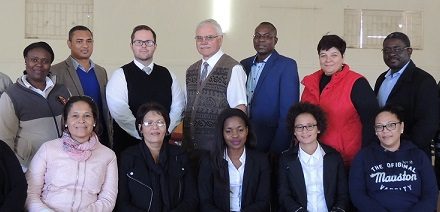
Transparency report highlights progress in access to information

The Media Institute of Southern Africa (MISA) released its annual Transparency Report which was launched at the inaugural Namibia Internet Governance Forum, which took place last week.
Misa Namibia Director, Natasha Tibinyane at the launch noted that there is a slight improvement in the performance of public institutions, however she said that there is a need for access to information to be mainstreamed as a priority in all public institutions.
This year’s study was conducted was conducted over a period of 21 days from August to July. The eight public institutions assessed this year were, the ministries of Justice, Poverty Eradication and Social Welfare (MPESW), Environment and Tourism (MET), Industrial Trade and SME Development (MTI), as well as the Namibia Financial Institutions Supervisory Authority (NAMFISA), Communications Regulatory Authority of Namibia (CRAN), National Statistics Agency (NSA), and the Electoral Commission of Namibia (ECN).
The recipient of the Golden Padlock Award (most secretive institution), is the Ministry of Justice with a score of 2/40. At the time of the study, the ministry’s website was offline and it had no social media presence. In addition, the researcher’s request for information was ignored.
The recipient of the Golden Key Award is the Communications Regulatory Authority of Namibia (CRAN) with a score of 35/40. CRAN’s website was up-to-date, helpful and well-organised, it also had active Facebook and Twitter accounts. The request for information was responded to on the day it was e-mailed.
In the report, MISA reiterates its call to government for the appointment of competent individuals as communication officers.
“Apart from one exception, the institutions that have scored the highest since this project’s inception, have individuals who have the education and work experience in the areas communication or public relations, and media or journalism.”
It further calls for government, civil society and the media to continue working together as partners. “This can surely only result in an informed and empowered citizen who participates in the strengthening of the Namibian state and its democracy,” the report concludes.













































